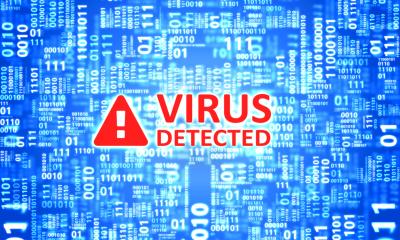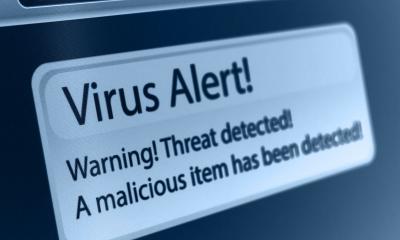
Security and anti-virus software are crucial components of your company's IT security strategy, so you have to select them wisely
Security and anti-virus software protects your computers, servers, software and data from viruses, malware, hackers, spyware, dodgy emails and more.
The market for security software has exploded, which makes choosing a suitable solution tricky. Choices range from free software, to comprehensive packages that promise complete protection – and come with a price tag to match.
Here are some useful tips to help you select the security and anti-virus software you need.
Determine your security software requirements
Not all security packages are the same, and they don't all perform the same function so you'll need to research your requirements before buying. Mapping your security requirements can help you identify the critical elements of your IT system that require protection.
When mapping your requirements, consider the following:
- What needs protecting? How many computers and servers do you have? Does your company also own mobile devices that need protecting?
- Do you already have any security software? You may be able to save money by using or upgrading an existing package.
- How much IT expertise do you have? Some security packages are easy to set up and maintain. Others require technical knowledge to integrate.
- Do your staff understand IT security? Consider giving staff members more control if you are confident they understand the risks.
- Do you need to meet external standards? For example, if your business accepts card payments, you may may be required to have security software to comply with PCI-DSS regulations.
- What are your future plans? If you intend to expand your business, ensure your security software allows you to add extra users or devices.
The key decisions about your security software
While security packages may appear to offer similar features, they can provide different levels of protection. To make sure you're buying a capable package, check it's been independently tested by AV-TEST or ICSA Labs.
There are two main types of software to choose from:
- Standalone software must be installed and managed on each computer separately. It's simple to set up, but easy to disable if your staff feel it's getting in the way or slowing down their systems. However, this could leave you vulnerable. Standalone software is suitable for small companies with five or fewer staff who want a simple solution that they can use without needing technical support.
- Centralised software and cloud services are often delivered through the cloud, providing you with a control panel to monitor and manage security protection across your business. The simple dashboard provides peace of mind that everything is protected. You can remotely schedule updates, and ensure that all users are running the latest version of anti-virus software.
Before selecting a security package, speak to an independent IT supplier or support company. They can discuss your options and help you to choose a security software platform that's built for your business.
What to check before buying security software
When it comes to selecting a security package, here are some of the questions you should answer before buying:
- Are your systems powerful enough to run it? Anti-virus software can be quite demanding, because it's constantly scanning files in the background. This can cause older computers to slow down, which makes work frustrating. Before investing, ensure your computers comfortably exceed the software's requirements.
- Are there any potential clashes with existing software? Because security software needs to access all the data on your computer, it can occasionally clash with or block other software. Check the software's website, user reviews or forums for any known issues.
- Can you afford it? A decent security package typically costs £20 - £50 per computer, including updates for two years. Budget for ongoing update costs and cost increases, as well as any additional users you may need to add to the plan.
If you have the opportunity and the ability to test out a few security packages you should do so. You can see how the software runs alongside your existing packages and identify any clashes or concerns before investing too much.
Security software is part of your strategy
It's vital you have security and anti-virus software on all your computers and servers. However, don't let it lull you into a false sense of security.
You and your employees, must remain vigilant to keep your business safe. Make sure you have a robust security plan, IT policies, good staff training and a backup system. Regularly review and refresh policies and plans to stay ahead of the hackers.
Is free security software good enough?
Business owners are always looking for ways to save, but security isn't a good place to slash costs. Free security software may work as a stop-gap, but if you're serious about protection, that comes at a price.
Also, most free security packages are designed for individuals, not businesses. They can take a long time to install, configure and maintain – and even then only offer limited protection.
Our advice is to invest in professional software for total protection.


